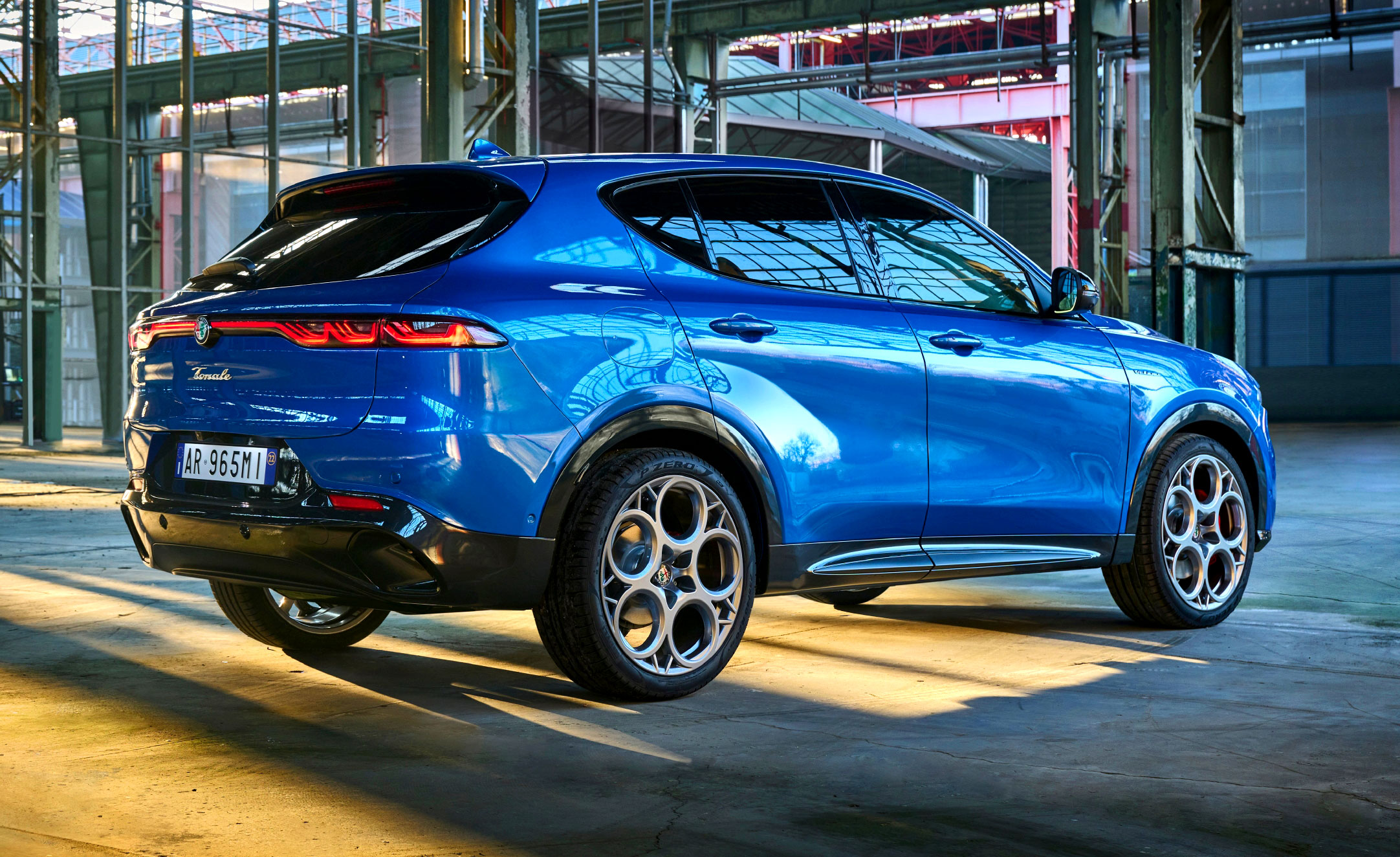One of most intriguing facts to come out of Alfa Romeo’s Tonale SUV reveal was how the company would use NFT technology to safeguard the used values of its first ever hybrid car.
NFT stands for non fungible token, and many of us will have only heard this fairly new term in relation to some eye watering prices recently paid for digital artworks, for the original versions of images made famous in memes, and for Twitter founder Jack Dorsey’s very first tweet.
Other automakers have dabbled with NFTs as crypto-art, but Alfa is using NFTs to give each of its new small SUVs a kind of digital fingerprint. With a customer’s consent, and using the same kind of blockchain technology used to generate cryptocurrency, the car will record data about maintenance that can then act as a guarantee that the car has been properly cared for, assuaging the fears of prospective used buyers down the road.
Because the technology doesn’t allow the data to be modified, Alfa believes it will make buying a used car a more transparent and less risky business. That’s good news for used buyers, but it should also mean stronger residuals, which will encourage new buyers. And Alfa desperately needs more of them.
Related: Lamborghini’s Latest Key Is Made From Carbon Fiber, Has Traveled To Space, And Unlocks An NFT
As we understand it, Alfa’s NFT scheme will only be used to record proof of maintenance and requires a dealer to assign the data, but it doesn’t seem like a huge leap to see how the idea could be expanded (by all carmakers, not just Alfa) to record far more data about how the car was used.
Picture the scene: you’re looking to strike a good deal on your next car, but it looks like it’s just been pulled out of canal, so you spend the weekend washing, waxing and vacuuming the hell out of the thing, and you even get your local mobile paint repair guy to touch up a few little parking scrapes and refinish the wheels to make sure you get the best possible trade-in value.
At the dealership you’ve already agreed on the spec and price of your new car, so all that’s left is to lock in a part-exchange value on your old one. The salesman compliments you on having looked after it so well, tells you it books at $20,000, but just has to check your NFT before he can sign off the deal.
But when he plugs in his OBD99 reader it tells him that you gun the thing hard form cold every single morning on the way to work, that you’ve activated launch control on average twice a week for the past three years, had a minor bump repaired last July that’s not recorded on any insurance database, and had a check engine light blinding you from the dash for 18 months until you finally got it extinguished last month.
Related: Alpine Adopts Russian Designer’s GTA Study To Sell It As An NFT
He tells you he’ll have to disclose all this data to any prospective purchaser and that it’s very difficult to sell any used car the days without a spotless NFT check, so he can’t really accept it as a trade. But to “do you a favor” he’ll give you $12,000.
Obviously the flip side of this hypothetical scenario is that those of us looking for used cars would be able to ensure that the Civic Type R we spotted on a lot looking freakishly tidy really had only been driven to church on Sundays, and never taken over 4,000 rpm by its 90-year-old owner. But then what are you going to do? Drive your new Type R the same way she did, or forget about the battering you’re going to take when you want to sell it a year from now, and drive it how you want to drive it?
Does this sound like a plausible scenario to you, or are we just being paranoid? And would you welcome this kind of verifiable vehicle data log when buying or selling your car? Leave a comment and let us know.
[embedded content]




